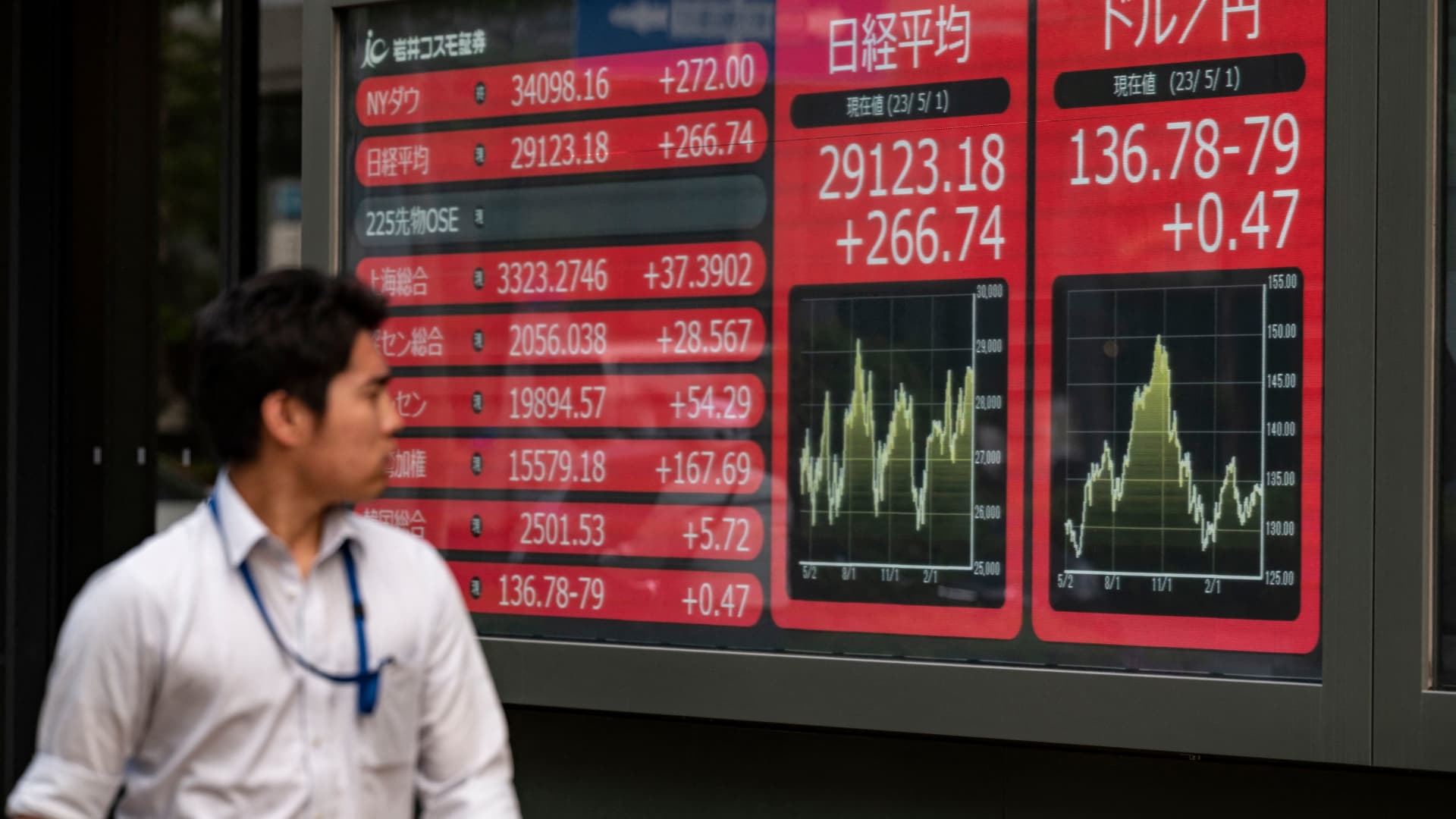
The Nikkei 225 index , one of Japan’s most important stock market benchmarks, could surge more than 50% over the next two years, according to Tokyo-based advisor Jasper Koll. Koll, a director at stockbroker Monex, who’s known as a Japan bull, cited strong domestic momentum, industrial consolidation, and improving corporate performance as reasons for his optimism “It’s not weird to forecast that the Nikkei will be at 50,000-55,000 in a couple of years,” Koll told CNBC’s Street Signs Asia Monday. The Nikkei 225 currently stands at just over 36,000 points, meaning Koll’s target represents a potential upside of around 50% in the next two years. Can stocks go up by 50%? While some may view Koll’s forecast as ambitious, he insists the ingredients are in place to fuel these gains. “All that you need is about 35% earnings growth over two years, which is perfectly possible,” explained Koll, on top of a “little” expansion in valuation multiples for stocks to achieve his price target. Koll, who was previously chief economist and head of equity research at JP Morgan Japan, believes the top 50 companies in the world’s third-largest economy can realistically deliver this level of profit growth. In addition, rising real estate values will also provide a “kicker” by boosting Japanese financial companies, Koll said. When real estate values rise, financial companies benefit because higher property prices lead to greater collateral value for mortgages and loans issued by banks and other lenders. This, in theory, allows Japanese financial institutions to lend more money while facing reduced credit risk. So far this year, the Nikkei 225 is already up around 8% and over the past 12 months, it has surged over 30%. For comparison, the S & P 500 is up around 3.6% this year so far, and around 20% ov e r the last 12 months. .N225 1Y line Koll noted that many global investors are increasingly bullish on Japan. Legendary investor Warren Buffett added a spark to Tokyo-listed stocks last year when he visited Japan to announce that Berkshire Hathaway was raising its stake in Japanese trading houses . Berkshire has since further increased its investment in the country. Not everyone is on board, however, with domestic retail investors slower to buy into this growth story. Koll estimates that the vast majority of Japanese retail investors choose to buy U.S. or other overseas funds, rather than domestic equities. But he expects this trend to reverse. “The value proposition is here. As it becomes clear that there’s actually a growth component to the Japanese market with the new generation of CEOs investing in new factories, consolidating the industries… that’s where the story begins to bear fruit,” said Koll. How to invest in Japan? For global investors wanting exposure to Koll’s bullish outlook, several Japan exchange-traded funds (ETFs) are easily accessible. German and Swiss investors can buy the iShares Nikkei 225 UCITS ETF through their local stockbroker. Similarly, Korean investors can access the KIM ACE Japan Nikkei225 ETF. Hong Kong investors have the CSOP Nikkei 225 Index ETF available. U.S. investors have the Xtrackers MSCI Japan Hedged Equity ETF available, which neutralizes any currency exposure. This ETF tracks the MSCI Japan index, which is a different index from the Nikkei 225 but holds about 70% of the same stocks. European, UAE, and Singapore-based investors can access the MSCI Japan index through the iShares MSCI Japan UCITS ETF.
